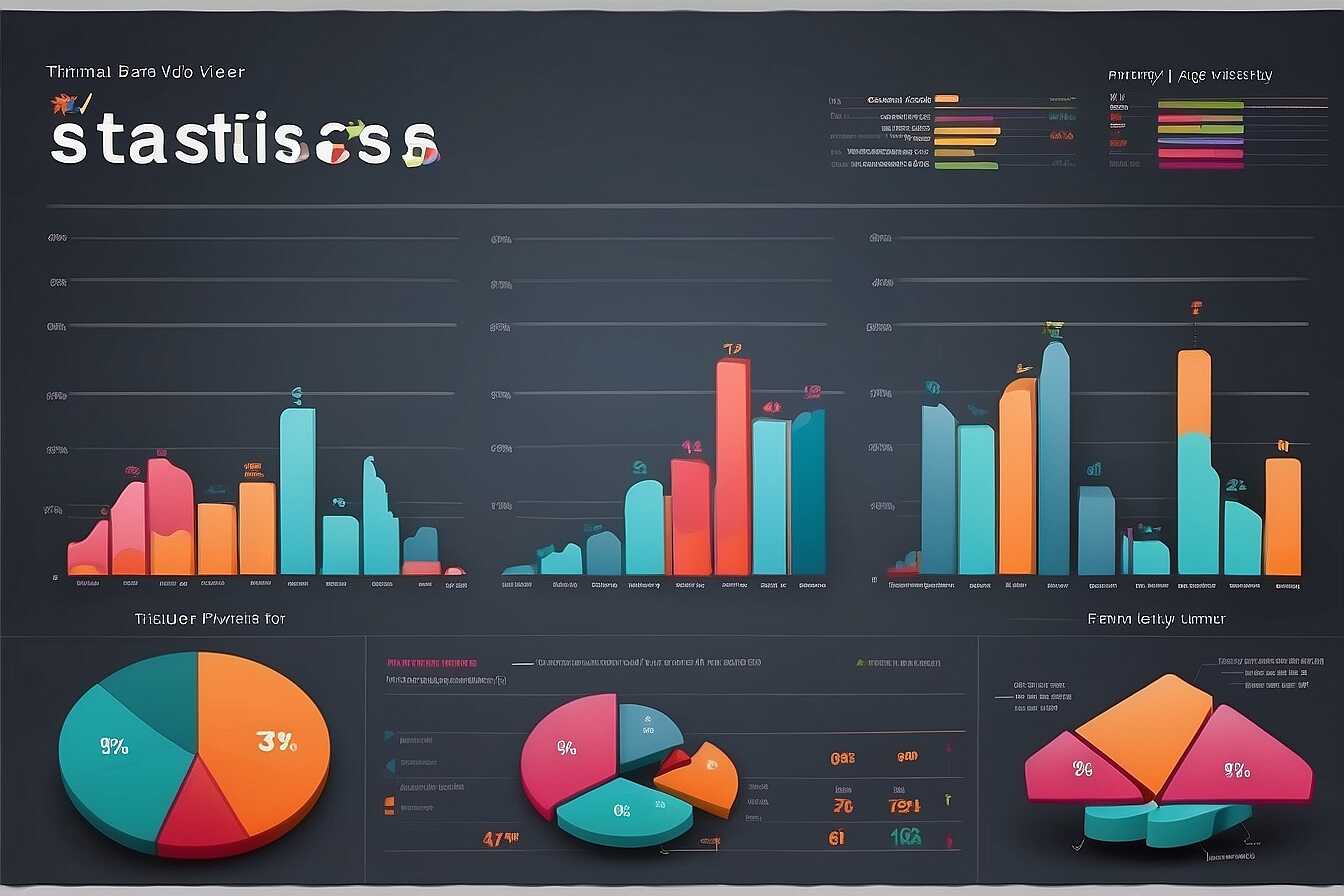Best practices for international SEO in e-commerce stores are crucial for businesses aiming to thrive in global markets. Implementing effective international SEO strategies helps enhance visibility and attract diverse audiences to your online stores. At Metrics Rule, we understand that optimizing your e-commerce website for different regions and languages can significantly impact your reach and sales. By following proven tactics, you can ensure your store stands out in competitive international landscapes.
Understanding International SEO and Its Relevance
International SEO involves optimizing your e-commerce website to reach customers in various countries and languages. It differs from traditional SEO by focusing on multiple geographic locations and languages. Effective international SEO enhances online visibility, helping businesses attract international customers through tailored search engine results. By optimizing factors like content localization and hreflang tags, businesses can improve their chances of appearing in search results relevant to targeted regional audiences.
Key Techniques for Implementing International SEO
To implement international SEO successfully, e-commerce businesses should leverage a range of effective techniques. Using keyword research tools to identify relevant terms in different languages is essential. Additionally, adapting content to local cultures ensures a better connection with international audiences. Tools like Google Analytics can help track the effectiveness of your international strategies and enhance your online presence. Furthermore, creating country-specific sitemaps improves crawling and indexing, allowing search engines to handle your website’s global structure efficiently.
Fundamental Components of an International SEO Plan
To create an effective international SEO plan, e-commerce stores must focus on three key components: international SEO strategy, content localization, and audience targeting. A robust international SEO strategy ensures that your website is designed for global audiences, optimizing factors like site structure, hreflang tags, and local search engine algorithms. Content localization is essential for adapting product descriptions and marketing materials in a culturally relevant way, ensuring your offerings resonate with local consumers. Audience targeting enhances the relevance of your website to international visitors by leveraging data and insights that inform which demographics to focus on and how best to engage them.
Essential Strategies for Content Localization
When it comes to content localization, the best approach involves more than mere translation. It requires a thorough understanding of local customs, cultural nuances, and consumer behaviors. E-commerce sites should aim to support multiple languages tailored to specific markets, ideally offering content in at least five to ten languages based on your target demographics. This strategy enhances user experience and builds trust, as local consumers feel more comfortable engaging with content in their native language. Additionally, testing localized content can provide insights into effectiveness, allowing for continuous improvement and better alignment between your offerings and the expectations of diverse customer bases.

Effective Website Structures for Multi-Region SEO
To create an effective multi-region e-commerce website, businesses should prioritize structured URL formats and strategic localization. Using localized domains, subdomains, and subdirectories is essential for better SEO and user experience. Localized domains such as example.fr for France can enhance credibility. In contrast, subdirectories (e.g., example.com/fr/) can simplify management and centralize authority. Moreover, a well-structured sitemap plays a critical role in crawling and indexing by search engines like Google and Bing, ensuring your pages are easily found across regions.
Optimizing URL Formats for International Reach
Optimizing URL formats is a key aspect of enhancing international SEO performance. When structuring your multi-region website, use clear and descriptive keywords in URLs to improve visibility. Research suggests that URLs containing relevant keywords may improve click-through rates. Keeping parameters user-friendly while ensuring they reflect geographic targeting helps build trust. Additionally, incorporating localized terms can significantly boost search results, enabling faster indexing and better engagement. With tested URL structures, you’ll find your e-commerce store can handle increased traffic from diverse regions effectively.
Key Facts for Global Online Retailing
- Over 50% of all online shoppers prefer to buy from local websites.
- 42% of e-commerce stores lack multilingual support on their websites.
- 93% of successful e-commerce brands utilize localized SEO strategies.
- Countries with strong e-commerce growth include China, the USA, and Germany.
- Features like currency conversion boost sales by 30% on average.
- 80% of consumers are more likely to buy when content is in their native language.
- Less than 25% of e-commerce websites optimize for international traffic.

Identifying Effective Keywords for Global Markets
Conducting international keyword research is crucial for e-commerce success. Utilizing reliable tools such as Google Keyword Planner, SEMrush, and Ahrefs can help uncover international keywords. It’s essential to consider cultural keyword differences since phrases that work in one market may not resonate in another. Understanding local nuances can enhance your keyword effectiveness. Also, track the average number of monthly searches through these tools to gauge keyword popularity globally. This data provides the insights needed to refine your SEO strategy and target high-value keywords relevant to each market.
Understanding Cultural Nuances in Keyword Selection
When optimizing for e-commerce, understanding cultural nuances in keyword selection is vital. Different countries have unique preferences and trends, influencing which keywords resonate. For instance, a product may have a distinct name or feature in varying cultures. Engaging in comparative keyword research helps identify these differences. Conduct surveys or focus groups to gather insights directly from potential customers. Tools like Google Trends can reveal real-time data on how search behavior changes in different regions. This tailored approach ensures your keyword strategy aligns with local demands, improving indexing and driving more traffic to your store.

Developing Tailored Content for Global Audiences
Creating tailored content for global audiences involves several key strategies. First, focus on effective translation techniques to ensure that your product descriptions remain clear and relevant. Next, implement localization practices to adapt this content to the cultural preferences and expectations of different markets. This includes understanding local slang, color meanings, and symbols. Finally, consider cultural adaptation, which may involve changing visuals or references to resonate better with local audiences. For example, a product’s marketing materials in one country might need a different approach compared to another due to unique cultural values.
Essential Elements of Successful Localization in E-commerce
Successful localization in e-commerce includes essential elements such as language accuracy, cultural relevance, and local compliance. Language accuracy ensures that translations are clear and convey the intended meaning without losing context. Cultural relevance involves adapting visuals and references to align with local customs and values. Local compliance may include adhering to regional regulations regarding marketing and product information. Additionally, using a global content strategy that encompasses all of these elements will enhance the overall effectiveness of your international SEO efforts, helping to drive traffic and improve conversions across various markets.
Advantages of Implementing Global Search Strategies
- Improved visibility in local search results can lead to higher sales.
- Enhanced customer engagement increases brand loyalty and repeat purchases.
- Effective international marketing expands your customer base significantly.
- Using international SEO can optimize your product offerings for diverse markets.
- Localized content generates better connection with the audience, enhancing trust.
- Increased site traffic from global visitors boosts overall website authority.
- Better understanding of global trends can inform future marketing strategies.

Leveraging Local SEO for Enhanced Global Visibility
To optimize Google My Business profiles for local SEO, start by completing all information, including business name, address, phone number, and services offered. Add relevant categories and high-quality images. Engage actively with customer reviews, responding promptly to enhance reliability. Local link building can include collaborating with nearby businesses and local organizations for mutual promotion, which helps improve visibility across targeted regions. Furthermore, utilizing customer reviews in your marketing strategy is essential as they significantly impact trust and conversions.
Maximizing Customer Reviews for Local SEO Success
Customer reviews are a vital component of local SEO success. In fact, studies show that over 80% of consumers trust online reviews as much as personal recommendations. To maximize their impact, encourage satisfied customers to leave positive reviews on your Google My Business profile and other platforms. Responding to reviews can show you care about customer experience, increasing reliability. Additionally, implementing a review monitoring system can provide valuable insights into customer satisfaction, enabling you to make data-driven improvements for better visibility.
Measuring and Analyzing SEO Performance Globally
To measure SEO performance on an international scale, businesses should employ tools such as Google Analytics and SEMrush. These platforms provide essential metrics for evaluating international SEO strategies. Key Performance Indicators (KPIs) include organic traffic, conversion rates, bounce rates, and keyword rankings specific to each target region. By monitoring these metrics, e-commerce businesses can assess their international SEO effectiveness and make data-driven decisions.
Utilizing Google Analytics for International SEO Insights
Google Analytics is designed to enhance international SEO performance by tracking user behavior across various regions. By setting up goals and conversion tracking, e-commerce stores can gain reliable insights into how users from different countries interact with their websites. This includes analyzing page views, session duration, and geographic traffic sources. Moreover, the tool provides the ability to compare performance metrics over time, enabling businesses to test different strategies and identify what works best per region, enhancing their international SEO efforts.
Notable Companies Adopting Global Marketing Techniques
- Amazon excels in offering localized content and regional product selections.
- eBay effectively utilizes user-generated content in various languages.
- Nike focuses on regional branding but can lack deep localization.
- Alibaba embraces a comprehensive approach with strong local partnerships.
- Shopify assists businesses with international reach but may limit customization.
- Etsy connects unique sellers but can create navigation challenges for users.
- Target focuses on North America and faces slower international growth.
Keeping Pace with Emerging International SEO Trends
Staying informed about the latest international SEO trends for e-commerce is essential to maintain an edge in global markets. Recent algorithm updates from Google and Bing impact how your site is crawled and indexed, which can affect your e-commerce visibility. Being aware of changes helps SEO specialists in refining strategies and ensuring that they adapt to maintain high performance in organic search results. Engaging in reputable SEO community platforms, such as the Webmaster World Forums and attending local meetups is key to ongoing learning and collaboration in the field. Participating in these communities provides invaluable insights and experiences, especially regarding the implementation of new features and best practices in international SEO.
Key Resources for Staying Updated on International SEO
For e-commerce businesses, using reliable resources to stay aware of SEO algorithm changes is crucial. Websites like Search Engine Land and forums like IMGs provide excellent content on the latest updates. Subscribing to industry blogs from experts, such as Marie Haynes or SEO Intelligence Agency can enhance your knowledge. Additionally, using social media platforms, like Twitter, helps follow SEO leaders who share insights and reviews of new tools and trends. Leveraging these resources not only helps in understanding updates but also facilitates ongoing learning which is vital in this rapidly evolving landscape of international SEO.
